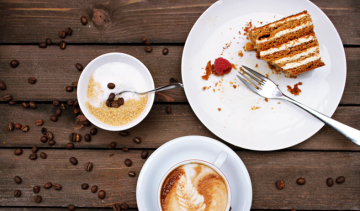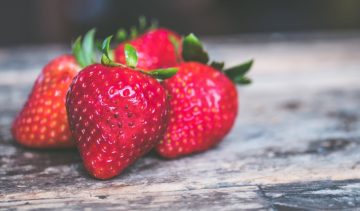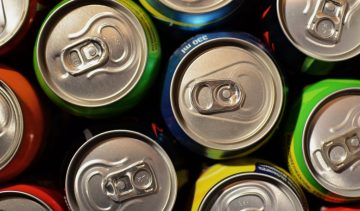Energy drinks are drinks with high doses of caffeine and other stimulant ingredients, such as taurine, ginseng, guarana and sugar / glucose. Caffeine has a stimulating effect on the nervous system, which enhances mental alertness and physical performance. Glucose / sugar on the other hand is the main energy source for the brain and may have a positive effect on the brain. A can of energy drink often contains around six sugar cubes. In the case of combined intake, glucose seems to support the effect of caffeine. Taurine is a substance that the body can make on it’s own and stimulates the functioning of the heart. An energy drink contains six times the required daily dose of taurine.
How does it work?
Research has shown that people who do not drink caffeine are as alert as people who do drink caffeine. In the short term one energy drink of 250-330ml has a stimulating effect on alertness, attention and reaction speed. This effect lasts for about half an hour to an hour and a half. In addition, it stimulates the kidneys, the stomach and the intestines. The high amount of sugar gives you a quick peak in energy followed by a dip. The high dose of caffeine on the other hand also gives your body a peak in energy, while the body does not actually need this energy. This means that the body gets exhausted which can result in your body going beyond your limits. It is therefore no surprise that the frequent drinking of energy drinks is related to burn-out complaints. It is not good for your and your well-being when you go over your limits time and time again. You become more tired and fuzzy which can be seen a signal to perhaps drink more energy drinks. This is the reason why is energy drinks are so addictive. The body gets used to the high dose of caffeine and sugar and therefore reacts less when drinking energy drinks. Overtime more and more drinks are needed to reach the wanted peak.
Physical consequences
Besides crossing your own boundaries and experiencing psychological problems, there are also many physical side effects.
- Two cans of energy drink decreases the quantity and quality of sleep. Chronic sleep deprivation reduces learning and memory performance and increases the chance of depression.
- Drinking energy drinks increases blood pressure and the heart rate. One can experience palpitations as a result. By consuming frequent energy drinks, your blood becomes more viscous, which can cause blood clots and in turn can cause a cerebral infarction or heart attack.
- When consumed in combination with alcohol, the energy drinks suppress signs of dehydration. The narcotic effect of alcohol is also experienced less strongly and often leads to more alcohol consumption.
- The frequent consumption of two or more energy drinks per day is related to overweight and diabetes. In addition, the combination of acid and sugar ultimately causes dental problems and the deterioration of taste pupils. And you may suffer from stomach acid.
- An ‘overdose’ of energy drink, especially in children and adults with diabetes and / or a heart defect, can lead to a stroke or heart attack. In the worst case this results in death. In 2012 an American girl drank 1.5 liters of energy drink in one day and died as a result.
What to do about your addiction?
Firstly, when you drink a lot of energy drinks it is important that you also drink enough water besides the energy drinks. Because of the large amount of sugar, your organs take take in the moisture very slowly. Reducing your consumption intake is the least difficult option. You starts by gradually reducing the number of cans you consume per day. You can pour the cans into smaller bottles so you drink less or you can add water to your drink so it is less sugary.
Many addicts and rehab specialists choose to stop using the addictive substance all at once. This means that you get rid of everything and really start working on your health. Tell the people in your surroundings that you have stopped so that they can help and support you. After that it is a matter of persevering. Depending on your habit you can suffer from withdrawal symptoms such as: (heavy) headaches, mood swings or feeling tired and sick.
The best day to start this is on a Thursday – assuming you are free from school or work during the weekend. Why? You will have the heaviest days with a strong headache on the third and fourth day. By stopping on a Thursday, these ‘difficult’ days fall in the weekends meaning it will give you more room to feel miserable without having to ‘do’ a lot. Plan something fun in your weekend because it will give you some distraction. But down plan something too big or important because you want the option to cancel t if you really feel too sick. Getting used to a life without it can take you one to two weeks, after which your body is quite used to the new situation.
You can do it
Research by the University of Amsterdam and Wageningen University has shown that a combination of rehabilitation therapies works best. The research mentioned above was about smoking cigarettes and it turned out that slowly phasing out and then stopping cold turkey gave the best results. By first reducing, these minor victories stimulate the motivation to stop completely.
You can best distract yourself during the rehabilitation process by doing something fun. In addition you can drink tea (preferably green tea) or water instead. Be careful with coffee, because before you know it, your energy drink addiction has been replaced by a coffee addiction.










